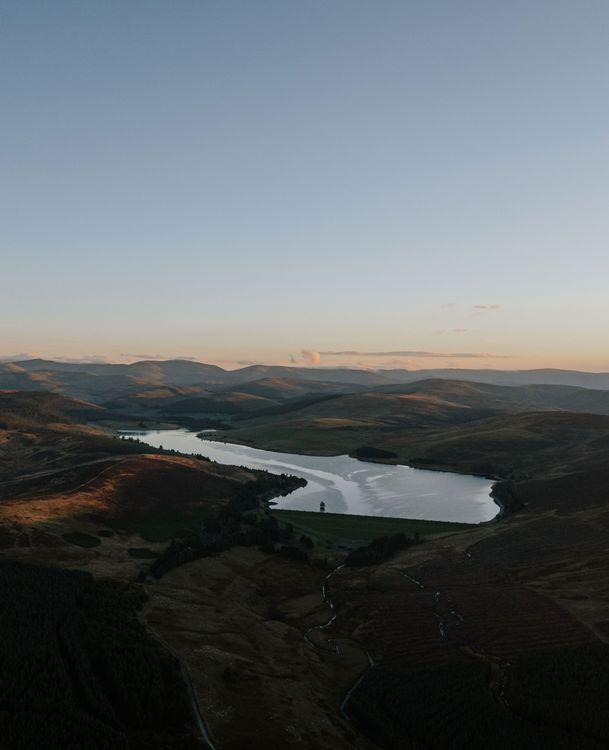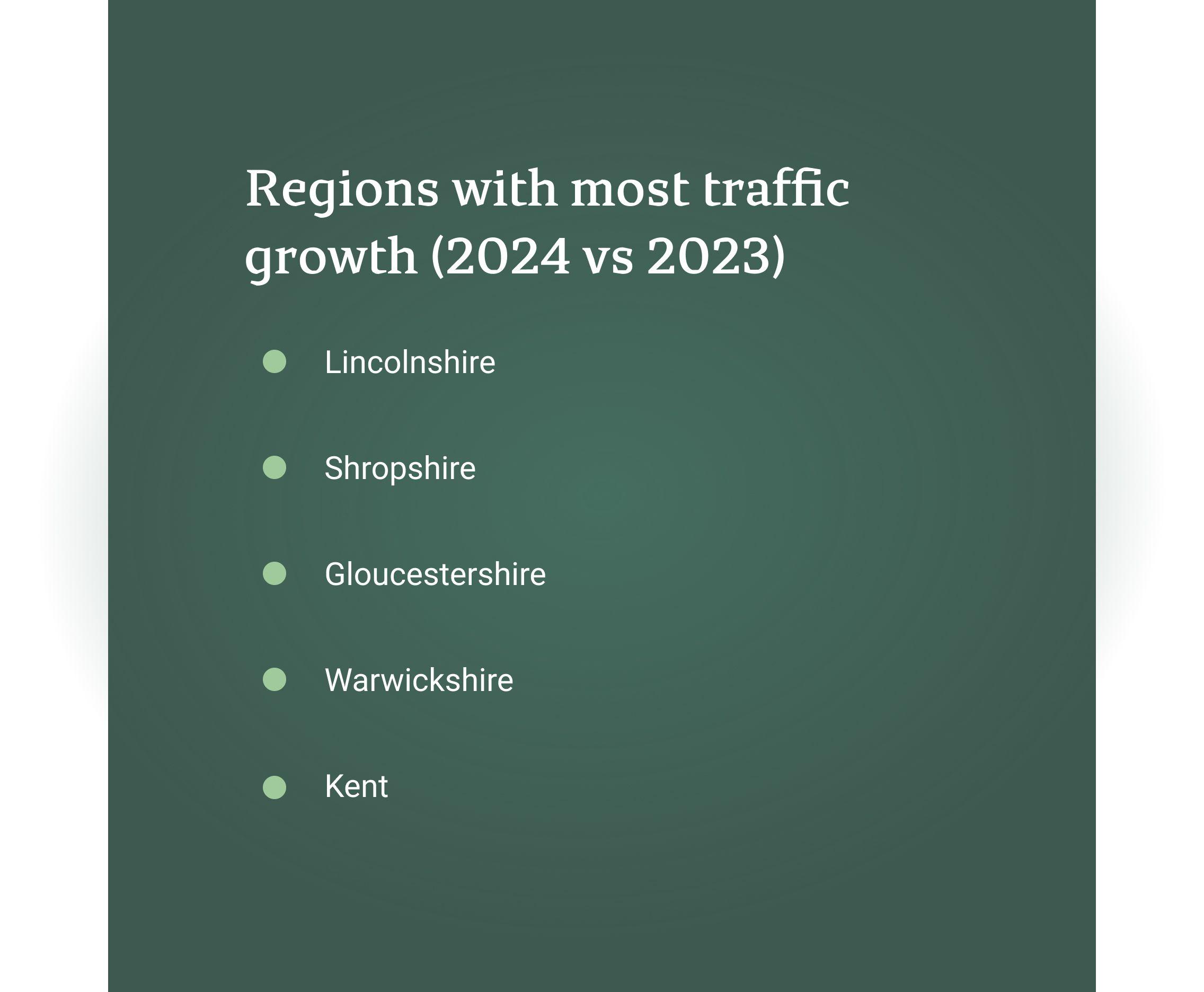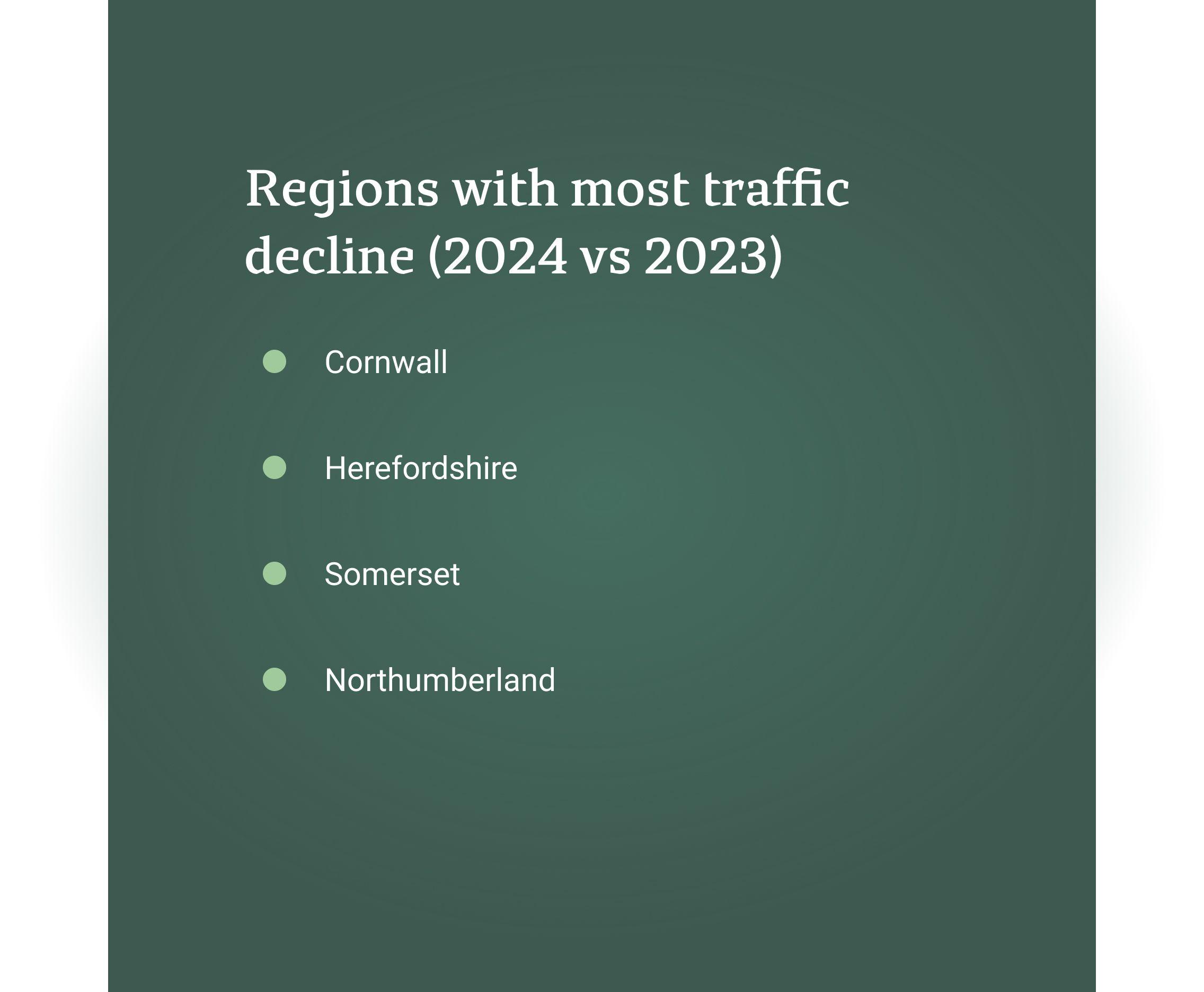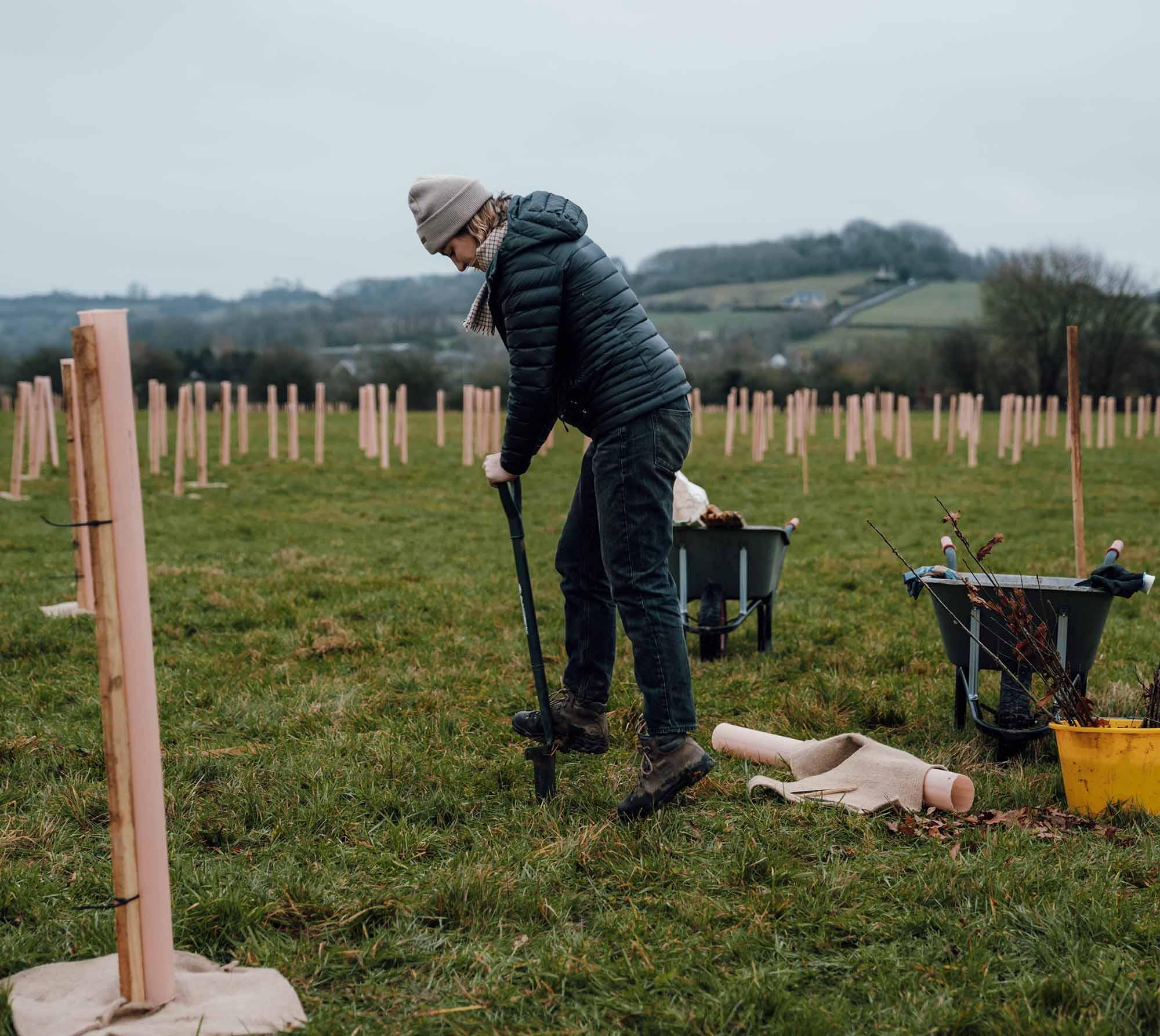
Exploring further
In brief: Travellers understand the impact of tourism and are more open to new destinations in their search for unique experiences
Regional distribution has traditionally been one of the least surprising areas of our data, with the glamping heartlands of Cornwall and Devon consistently outperforming all other areas, but this year has seen some noteworthy developments. Bookings in Cornwall and Herefordshire, another stalwart, have decreased, while previously less-favoured locations such as Gloucestershire and Lincolnshire have surged in popularity. The softening of those regional spikes represents an opportunity for some and a warning for others.


Saturation
A growing perception of classic destinations such as Cornwall being saturated with overpriced offerings due to high demand might have begun to take its toll. Devon, Cornwall and Wales saw lower occupancy rates than they have for the past few years, possibly indicating that guests needed more convincing to pay premium rates. For owners in those areas, it is more important than ever to distinguish themselves in the market and demonstrate their value. It is no longer enough to simply provide a place to stay in a popular location, guests are looking for deeper experiences.
Overtourism
The conversation around overtourism has grown much louder over the past year and is becoming an influencing factor in travellers’ decision making. The desire to explore has always existed, but the desire to consciously avoid certain places is new and, across the wider industry, tourists are visiting locations they may have ignored in the past. While this is great news for some regions, it may sound worrying for businesses in the traditional hotspots, but there is a sort of glamping loophole that allows everyone to support action on overtourism without harming their own sustainability.
Glamping has always been seen as the “better choice” both environmentally and in terms of its integration in communities. So, while businesses in traditionally less-popular areas will see more bookings, owners of small-scale operations anywhere can position themselves as a more locally focused alternative, a different way of going to the same places. Guests don’t want to stop going to places like Cornwall, but they may need to be reassured that there is a right way to do it. Incentives and features that help spread travel throughout the year and demonstration of links to the local area could persuade them to get fresh perspective on an old favourite.
New frontiers
The big winners from guests’ willingness to go an extra mile or two are the north of England and Scotland. Demand is outstripping supply in the north, with requests for summer weekend bookings far exceeding the capacity of places that exist to fulfil them and Yorkshire making its first appearance in the top three regions searched on our site. This could well be further evidence of the impact of wellness concerns on the industry, with the more rural areas of the north offering the sort of remote, open spaces that many are craving.
Scotland’s success, with many regions up 33% year-on-year for total bookings placed, is possibly slightly skewed by the effect of regulatory changes that led to many small businesses being forced to close and an occupancy surge for those that remained. New spaces which opened in some popular parts of the country performed well, but distinctiveness is still key. Supply will recover to match demand and the market will soon return to previous levels of competitiveness.










